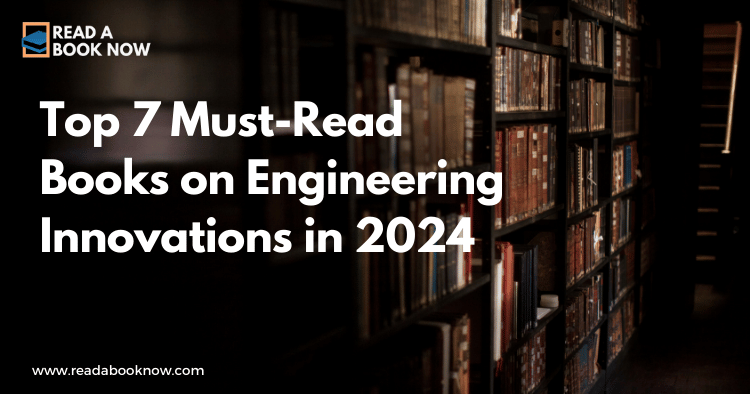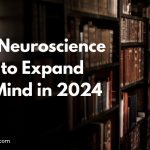Table of Contents
- Introduction
- 1. “The Future of Engineering: Innovations Redefining Our World”
- 2. “Smart Cities: Engineering a Sustainable Future”
- 3. “Robotics Revolution: How Engineering is Shaping Tomorrow”
- 4. “The Engineering of Sustainable Energy Solutions”
- 5. “AI in Engineering: Transforming the Industry”
- 6. “The Design of Everyday Things: Engineering User-Centric Solutions”
- 7. “Engineering Ethics: Navigating Innovations Responsibly”
- Conclusion
- FAQs
Introduction
As we step into 2024, the engineering landscape is more vibrant and innovative than ever. With advancements in technology, sustainability, and design, engineers are reshaping the way we live, work, and interact. Whether you’re a budding engineer, a seasoned professional, or just an enthusiast, these seven must-read books will provide you with insights into the latest innovations and trends in the field. Let’s dive in!
1. “The Future of Engineering: Innovations Redefining Our World”
In this compelling read, author Dr. Emily Chang explores the transformative innovations that are set to redefine engineering disciplines. From artificial intelligence to nanotechnology, this book covers a range of cutting-edge topics that every engineer should be aware of.
“Innovation is the driving force behind engineering advancements. Stay ahead by understanding the future today.”
Key Takeaways:
- Emerging Technologies: A detailed analysis of technologies that are changing the engineering landscape.
- Case Studies: Real-world examples of how these innovations are being applied across various sectors.
- Future Trends: Predictions on what the engineering world may look like in the next decade.
For insights into classic literature that inspired modern innovations, check out the Top 10 Must-Read 19th Century Classics for Every Book Lover.
2. “Smart Cities: Engineering a Sustainable Future”
As urban areas expand, the need for smart solutions becomes paramount. This book by Dr. Raj Patel discusses how engineering innovations contribute to the development of smart cities that are not only efficient but also sustainable.
“Smart cities represent the intersection of technology and urban living, enhancing quality of life for all.”
Key Takeaways:
- Infrastructure Improvement: How engineering is improving urban infrastructure through smart technology.
- Sustainability Practices: Insights into eco-friendly engineering practices that minimize environmental impact.
- Citizen Engagement: The role of community involvement in smart city projects.
Learn more about sustainability in literature with 10 Must-Read Post-War Literature Classics You Can’t Miss.
3. “Robotics Revolution: How Engineering is Shaping Tomorrow”
Written by robotics expert Dr. Sarah Thompson, this book delves into the incredible advancements in robotics and their implications for various industries.
“Robotics is not just about machines; it’s about reimagining the future of work and interaction.”
Key Takeaways:
- Robotic Applications: Examination of robotics in healthcare, manufacturing, and everyday life.
- Future Horizons: Discussion on the potential future of robotics and ethical considerations.
- Engineering Challenges: Insights into the engineering challenges faced in developing advanced robotic systems.
For a deeper understanding of ethics in engineering, consider reading Engineering Ethics: Navigating Innovations Responsibly.
4. “The Engineering of Sustainable Energy Solutions”
In this essential read, Dr. Michael Green highlights the engineering solutions that are paving the way for sustainable energy.
“Sustainable energy is not just a trend; it’s the future of engineering and the planet.”
Key Takeaways:
- Renewable Energy Technologies: An overview of solar, wind, and geothermal technologies.
- Energy Efficiency: Strategies engineers can employ to enhance energy efficiency in buildings and transportation.
- Policy and Economics: Discussion on how policy affects the implementation of sustainable energy solutions.
For more on sustainable literature, check out the 10 Must-Read Feminist Classics That Changed Literature.
5. “AI in Engineering: Transforming the Industry”
Artificial Intelligence (AI) is reshaping the engineering landscape, and Dr. Lisa Wong’s book provides an in-depth look at its applications and consequences.
“AI is not a replacement for engineers, but a tool that can amplify human creativity and efficiency.”
Key Takeaways:
- AI Applications: Case studies showcasing AI in design, manufacturing, and maintenance.
- The Future of Work: How AI is changing the role of engineers and the skills needed for the future.
- Ethical Considerations: A discussion on the ethical implications of AI in engineering practices.
To explore the impact of AI in modern narrative forms, you may find interest in 10 Must-Read Modern Dystopian Classics.
6. “The Design of Everyday Things: Engineering User-Centric Solutions”
Although originally published years ago, Don Norman’s classic continues to be relevant in discussing how engineering intersects with user experience design.
“Good design is invisible; it should seamlessly blend into the lives of users.”
Key Takeaways:
- User-Centric Design Principles: The importance of designing products that meet user needs effectively.
- Real-World Examples: Case studies on successful user-centric engineering solutions.
- Design Challenges: Insights into common design pitfalls and how to avoid them.
For more on design and user experience in literature, see Top 10 Modern European Classics You Can’t Miss.
7. “Engineering Ethics: Navigating Innovations Responsibly”
In an age of rapid innovation, understanding the ethical implications of engineering decisions is crucial. Author Dr. John White explores key ethical dilemmas faced by engineers today.
“Ethics in engineering is not just a guideline; it’s a necessity for sustainable progress.”
Key Takeaways:
- Ethical Frameworks: Introduction to frameworks that can guide ethical decision-making.
- Case Studies: Examination of historical case studies where engineering ethics were put to the test.
- Future Considerations: Insights into how engineers can prepare for ethical challenges in the future.
To further explore ethics in literature, check out 10 Essential Postcolonial Classics You Must Read Today.
Conclusion
These seven books are not just informative; they are essential for anyone looking to understand the future of engineering innovations in 2024 and beyond. By diving into these reads, you’ll gain a broader perspective on how engineering continues to evolve and impact our world.
FAQs
Q: Why should I read these books?
A: Each book offers unique insights into current trends and future directions in engineering, making them invaluable for anyone interested in the field.
Q: Are these books suitable for beginners?
A: Yes! While some books dive deep into technical aspects, they are generally written to be accessible for readers at all levels.
Q: How can I purchase these books?
A: Most of these books can be found on major online retailers like Amazon or at your local bookstore.
Q: Will these books help me in my engineering career?
A: Absolutely! They provide knowledge and insights that can enhance your understanding and skills in the field.
Feel free to explore these resources and expand your knowledge in the exciting field of engineering!



